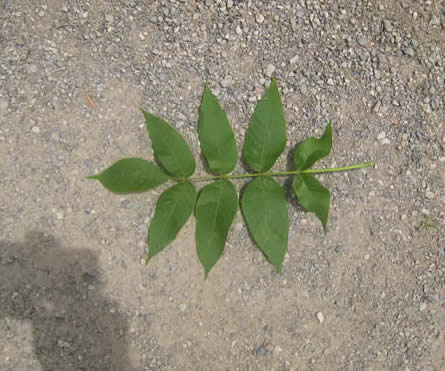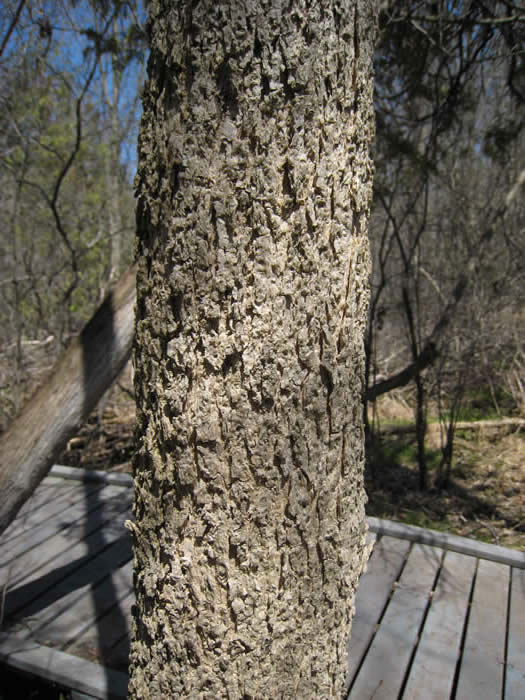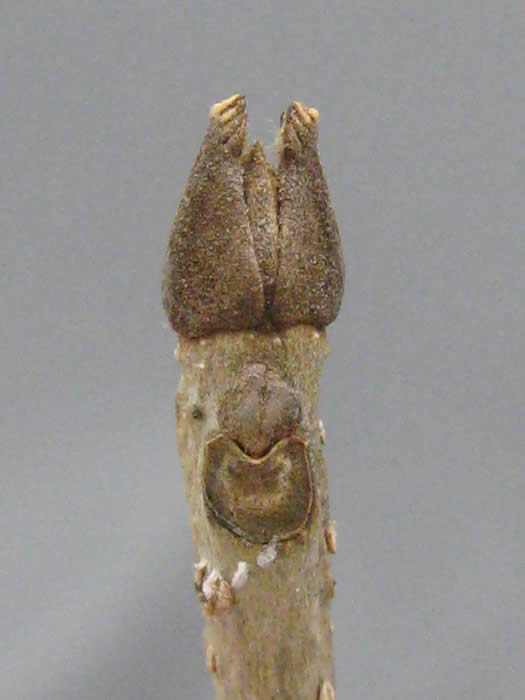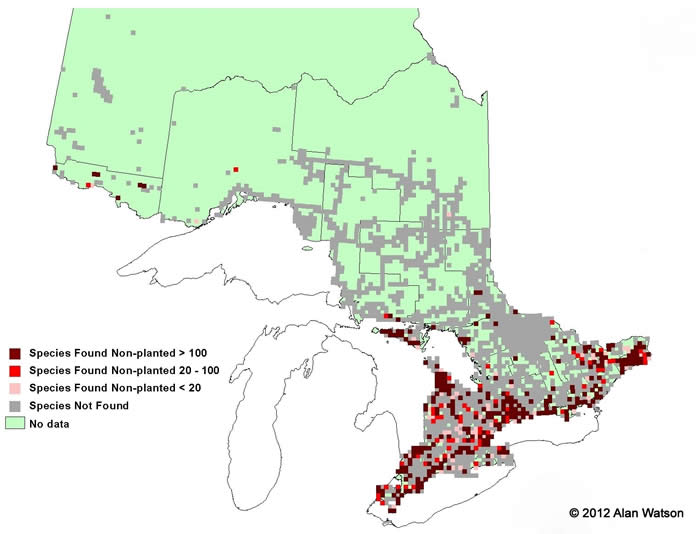black ash
black ash / Fraxinus nigra
The shade intolerant, moisture-loving black ash can be found in pure stands but is usually found growing near black spruce, balsam fir and speckled alder. The wood is very flexible and is able to be permanently bent, which makes it very useful in creating snowshoes and canoe ribs. The wood ashes of this tree are rich in potash, which is utilised as a soil fertilizer. The seeds of the black ash provide essential food for wild turkeys, grouse and other small mammals. This once-common tree is now a provincially (and globally) endangered species, the result of devastating damage caused by Emerald Ash Borer.

The central stalk of the black ash leaf contains 7-11 leaflets that each measure 15-30cm long. They are all oval shaped and taper to a slender tip. Photo by Brian Lacey.

Bark of the black ash is light grey, with corky ridges that can be easily removed by hand. Photo by Sean Fox.

The terminal bud of the Black Ash is 4-10mm long, dark brown and distinctly pointed. Photo by Sean Fox.

Ontario Tree Atlas map of non-planted Black Ash. 1995-1999.
References
Farrar, J.L.. 1995. Trees in Canada. Fitzhenry & Whiteside Ltd. Toronto. ON. 504 pp.
Kershaw, L. 2001. Trees in Ontario: Including tall shrubs. Lone Pine Publishing. Edmonton. AB. 240 pp
Muma, W. 2011. Ontario Trees and Shrubs. [Online] Available: www.ontariotrees.com
OMNR, 2011. Ontario Ministry of Natural Resources: Ontario Tree Atlas. [Online] Available: http://www.mnr.gov.on.ca/en/Business/ClimateChange/2ColumnSubPage/267027.html
OMNR, 2008. Ontario’s Biodiversity: Species at Risk.